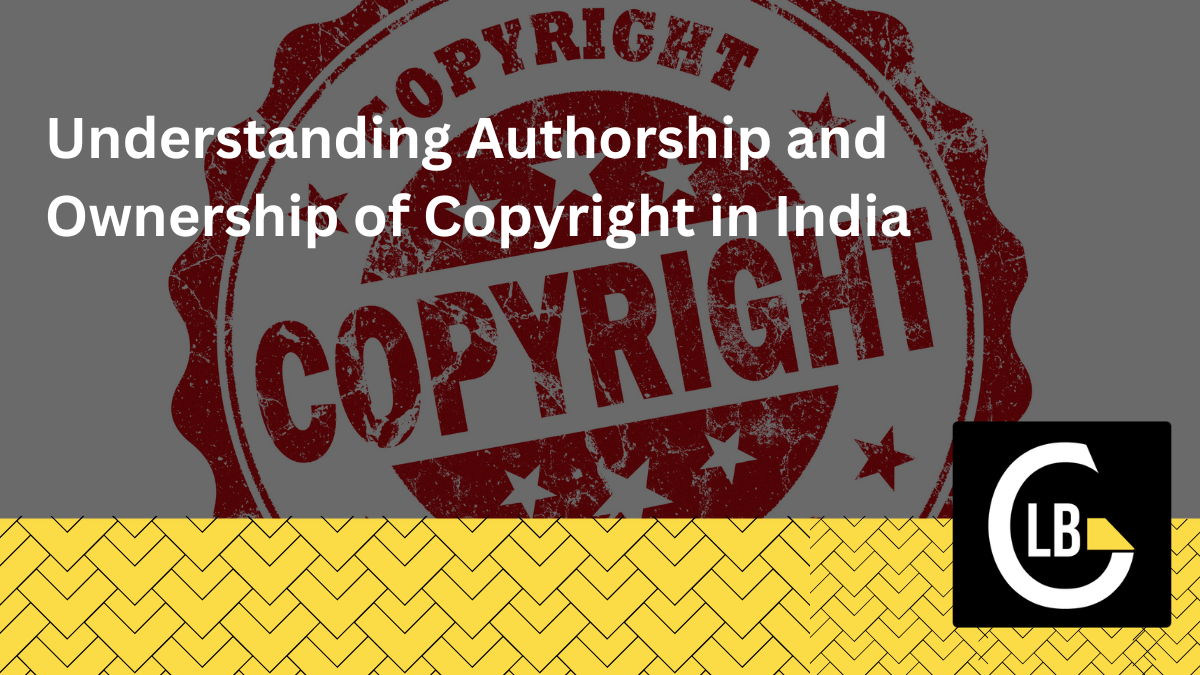If you’re a creator—whether you write, paint, compose music, or make films in India—it’s essential to understand how copyright law protects your work. Copyright provides creators with rights over their original works, but it can be tricky to figure out who owns these rights in different situations. This guide explains the basics of authorship and ownership when it comes to copyright in India.
What is Copyright?
Copyright safeguards original works, like books, songs, paintings, movies, or software, by giving the creator the exclusive right to control how their work is used, shared, or sold.
In India, the Copyright Act of 1957 oversees these protections, ensuring creators maintain control over their work and benefit from it.
Who is the Author?
The “author” is typically the person who creates the work, but it depends on the type of creation:
- For books, music, and artwork, the creator is the author.
- For photographs, the photographer is the author.
- For films or sound recordings, the author is the producer.
- For computer-generated work, the author is the person responsible for making the necessary arrangements to create it.
Authors also have moral rights, which include the right to be identified as the creator and the right to object to any unauthorized changes to their work.
Who Owns the Copyright?
Usually, the author holds the copyright, but there are exceptions. Here’s where ownership can differ:
1. Employer Ownership
If you’re creating work for a company as part of your job, the company will likely own the copyright unless otherwise agreed. This applies to both full-time employees and freelancers.
2. Joint Work
When two or more people collaborate on a project, they typically share the copyright unless they agree on a different arrangement. Both contributors must have made significant input to the final work.
3. Commissioned Work
When someone hires you to create something, the ownership of the copyright depends on the agreement. Unless specified otherwise, the creator (you) retains copyright, though many clients negotiate for ownership.
Can Copyright Be Transferred?
Yes, copyright can be given or sold to someone else, either permanently or for a specific period.
- Assignment: This is a permanent transfer of copyright from the author to another party. It needs to be in writing.
- License: This allows others to use the work under specific conditions, while the author still retains ownership. Licensing can be exclusive (granted to one person) or non-exclusive (granted to multiple people).
What Happens to Copyright After Death?
When an author dies, their copyright is transferred to their legal heirs. However, any agreements made during the author’s lifetime, such as assignments or licenses, remain in effect.
How Long Does Copyright Last?
Copyright protection isn’t indefinite. In India, it generally lasts:
- For literary, musical, or artistic works: the author’s lifetime plus 60 years.
- For films, sound recordings, and government work: 60 years from the date of publication.
Once this period ends, the work enters the public domain, meaning anyone can freely use or adapt it.
Conclusion
Understanding copyright, authorship, and ownership is key for creators in India. While the author often holds the initial copyright, there are many scenarios where ownership can shift. If you’re working on a project, especially with others or under a contract, be sure to have clear agreements to protect everyone’s rights.
